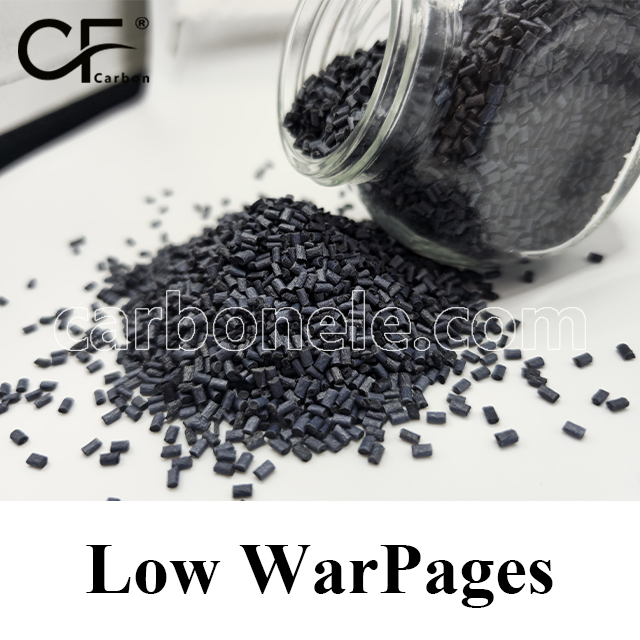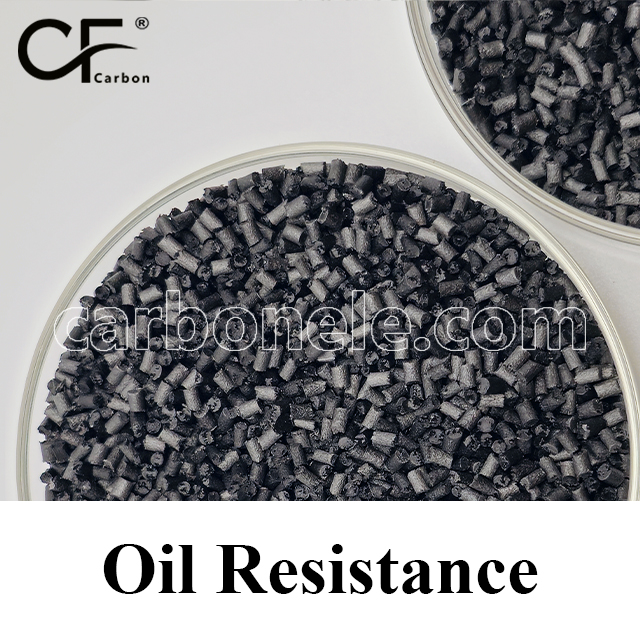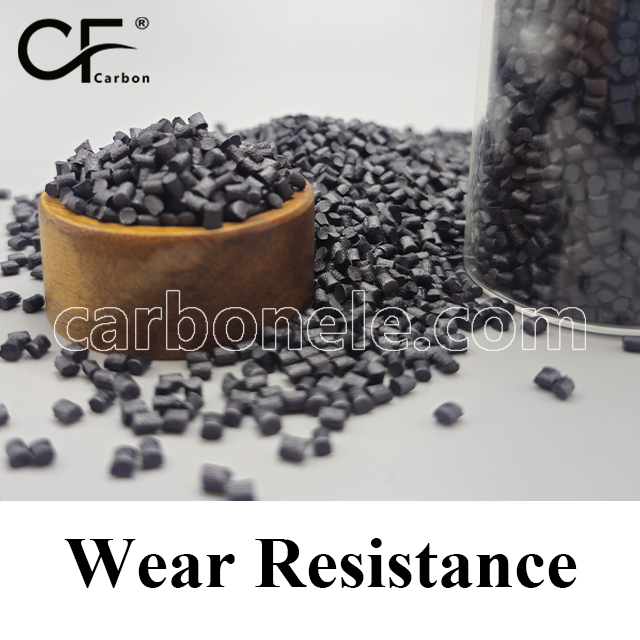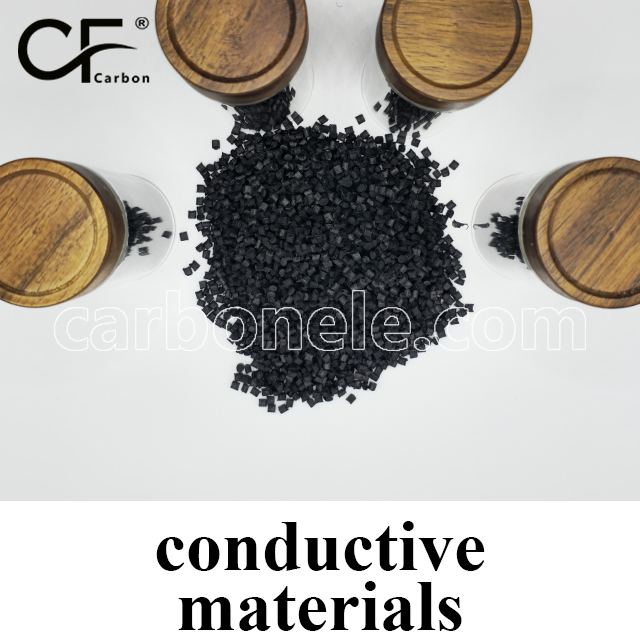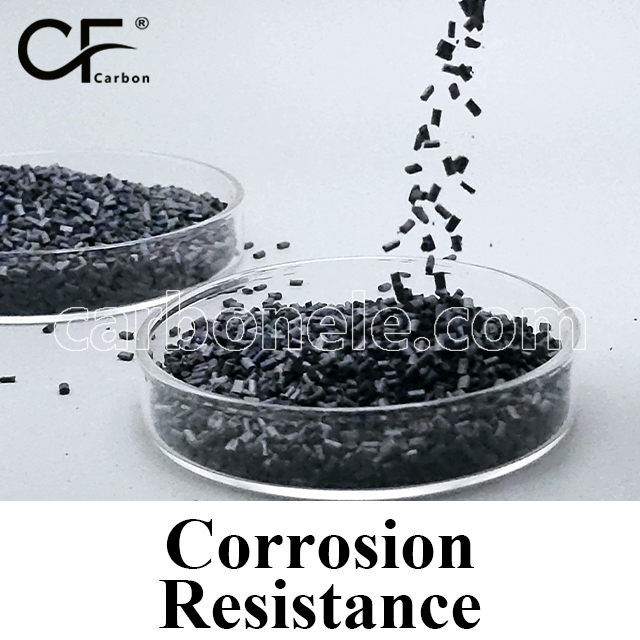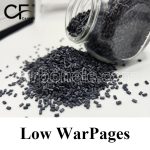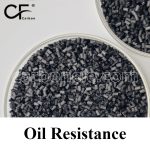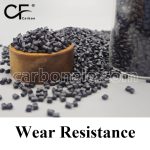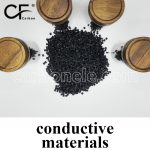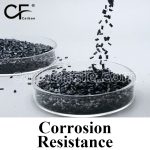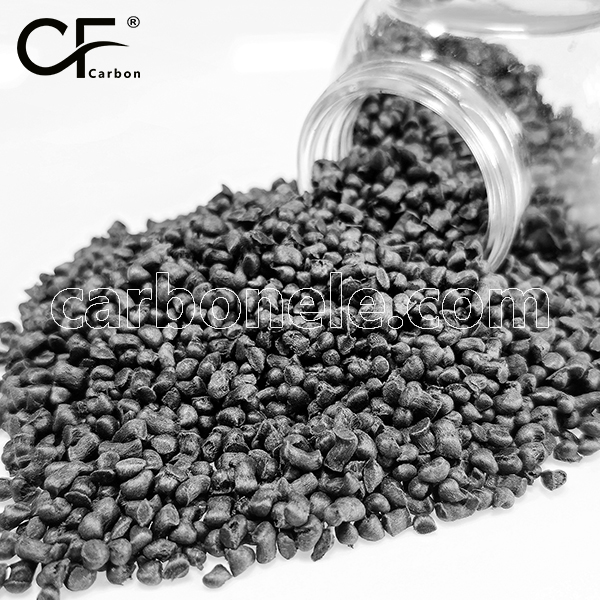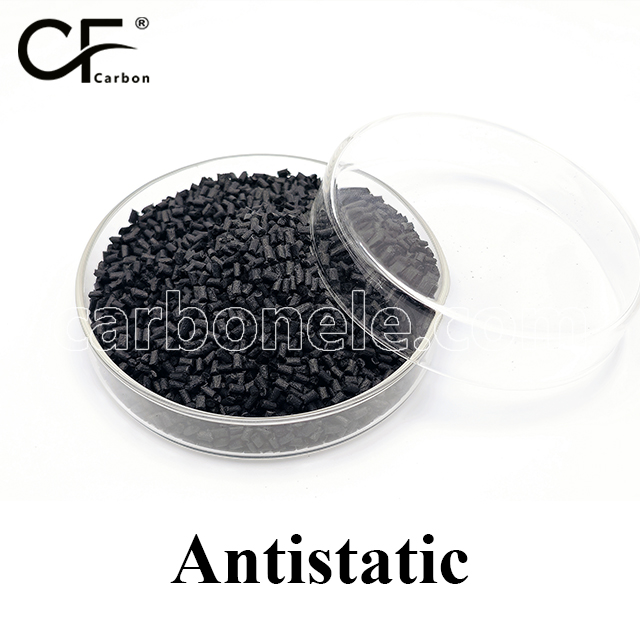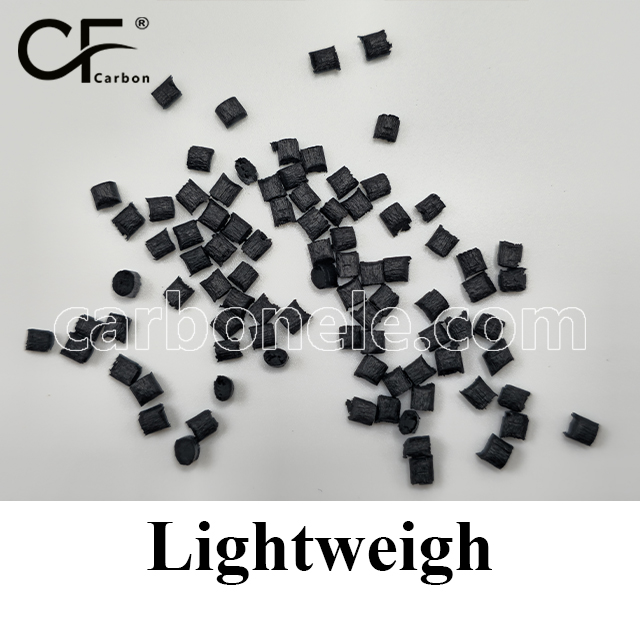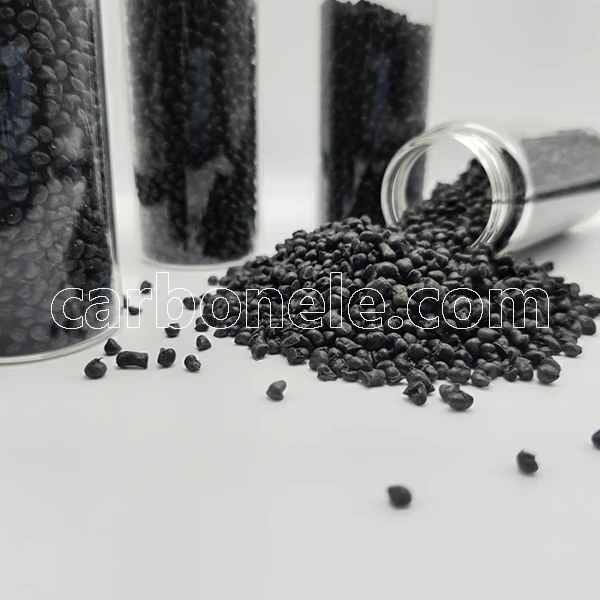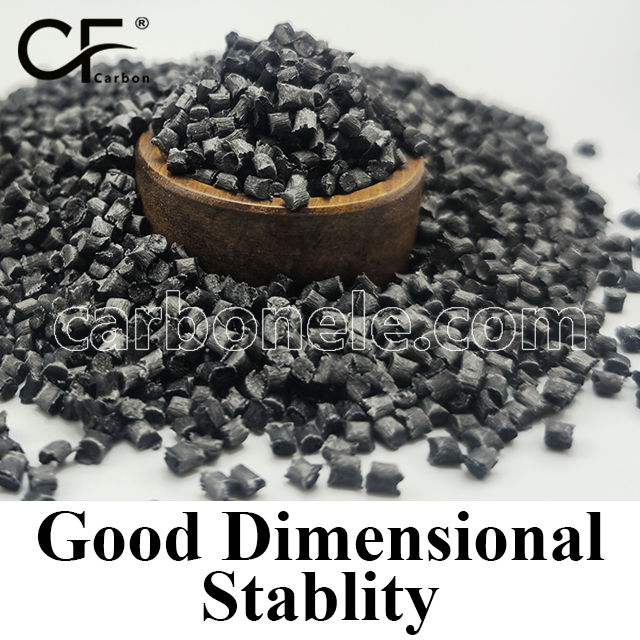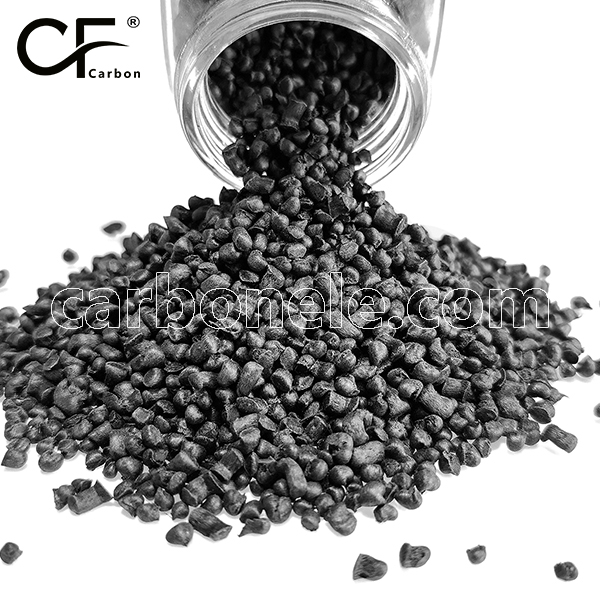TPU-CF50 combines the strength of 50% short carbon fiber with the flexibility and toughness of TPU, creating a semi rigid composite ideal for high-load, high-wear applications. It offers excellent dimensional stability, thermal resistance, and durability under mechanical and environmental stress.

Engineering uses TPU-CF50 carbon fiber polymer
- Model number: TPU-CF-BCA5
- Matrix Resin: Thermoplastic polyurethane (TPU)
- Reinforcing Filler: Carbon fiber
- Appearance: Granules
- Grade: Injection/extrusion grade
- Packaging: 25kgs/bag
TPU-CF50 | 50% Carbon Fiber Reinforced Thermoplastic Polyurethane
TPU-CF50 is a high performance structural grade thermoplastic elastomer that combines the resilient flexibility of TPU with an even more robust 50% short carbon fiber reinforcement. This elevated fiber content significantly enhances stiffness, tensile strength, and dimensional stability, transforming the material into a semi rigid composite that excels in mechanically intensive environments while still offering a degree of impact absorption.
Engineered for applications where both form stability and controlled elasticity are essential, TPU-CF50 provides exceptional mechanical load resistance, elevated thermal endurance, and long-term performance reliability—even in the presence of oil, fuel, moisture, or high frequency motion. This makes it an excellent alternative to metals, rigid polyamides, or glass filled polymers in design contexts that demand lightweighting without compromise in structural performance.
TPU-CF50 is particularly suited for high-duty industrial, automotive, and robotic systems, where precision, durability, and resistance to environmental stressors must coexist.
Core Performance Highlights
Mechanical Properties
Carbon Fiber Content: 50% (short carbon fiber, uniformly dispersed)
Tensile Strength: ≥ 90 MPa
Elongation at Break: ≥ 40%
Shore Hardness: ~98A
→ Superior load bearing capability and increased rigidity, with just enough elasticity to manage vibration and minor flex under repeated loads.
Thermal Resistance
Heat Deflection Temperature (HDT): ~125 °C
Continuous Use Temperature: Up to 110 °C
→ Withstands higher thermal stress than lower fiber TPU grades—ideal for thermal cycling, high friction zones, or near engine applications.
Environmental & Chemical Durability
Moisture Absorption: Extremely low — ensures dimensional accuracy in humid or water prone environments
Chemical Resistance: Outstanding — resists oils, greases, fuels, and industrial solvents
→ Delivers uncompromised mechanical performance in harsh operating environments.
Processing & Manufacturing
Molding Methods: Injection molding, extrusion, 3D filament extrusion
Surface Finish: Matte with pronounced carbon fiber texture; surface details become more visible with increased loading
Tooling Considerations: High pressure injection systems and abrasion resistant steel molds are strongly recommended to ensure proper fiber orientation and cavity fill during processing.
→ TPU-CF50 remains compatible with mainstream thermoplastic processing methods but requires precision mold design and robust equipment due to its high fiber content and associated flow behavior.
Target Applications
Automotive & Transportation
Reinforced brackets, high rigidity mounts, thermal shielding elements
→ Replaces select metal and PA based components in dynamic structural zones where vibration, heat, and chemical exposure coexist.
Industrial Machinery & Equipment
Structural isolators, torque resistant linkages, ruggedized interface parts
→ Ideal for load carrying, friction intensive, and motion heavy interfaces within factory automation or mechanical assemblies.
Robotics & Automation
Structural arms, actuator casings, semi flexible joint supports
→ Balances load bearing stiffness with precision flexibility, enabling efficient hybrid structural design in advanced robotic systems.
High Duty Protective Equipment
Armor panels, exoskeleton frames, impact dampening shells
→ Offers lightweight protection with exceptional mechanical toughness for sports gear, military grade equipment, and field use enclosures.
Performance Summary Table
| Property | Value / Description |
|---|---|
| Carbon Fiber Content | 50% (Short Carbon Fiber) |
| Tensile Strength | ≥ 90 MPa |
| Elongation at Break | ≥ 40% |
| Shore Hardness | ~98A |
| Heat Deflection Temp. | ~125 °C |
| Long Term Service Temp. | Up to 110 °C |
| Water Absorption | Extremely low — dimensionally stable in moist environments |
| Chemical Resistance | Outstanding — resists oils, greases, fuels, solvents |
| Wear Resistance | Ultra high — ideal for repetitive motion or sliding applications |
| Processing Methods | Injection molding, extrusion, 3D printing |
| Surface Finish | Matte/textured — enhanced carbon visibility due to higher load |
| Dimensional Stability | Exceptional — suited for rigid flex hybrid structural components |
If you want to get more information about TPU-CF50, you can vist our Youtube.
Friction coefficient of PA12-LCF
The friction coefficient of TPU is typically between 0.3 and 0.5, while TPU-CF, with added carbon fiber, lowers the friction coefficient to between 0.2 and 0.4. The smaller the value, the better the wear resistance. Therefore, TPU-CF generally offers better wear resistance than pure TPU, especially under high-load conditions.
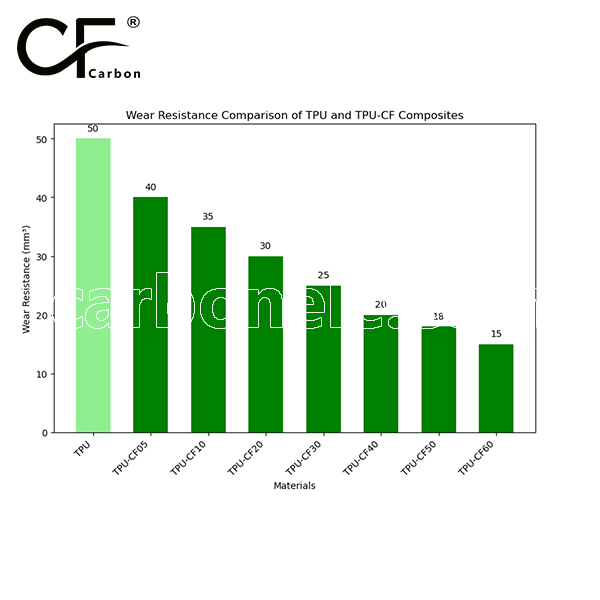
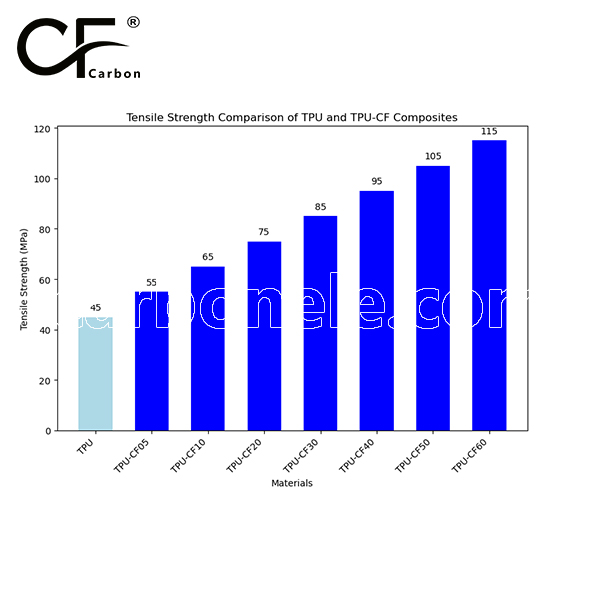

Frequently Asked Questions
Carbon (Xiamen) New Material Co., Ltd. aims to provide buyers with "one-stop" worry-free high-quality services. Here you can find all information about carbon fiber engineering plastics. If you still have questions, please send us an email for consultation!
-
How can I contact the manufacturer of a product that interests me?
When you find a product you are interested in, you can contact the manufacturer directly by sending an email and we will get back to you as soon as possible.
-
How do I find the products that interest me?
All you need to do is enter the keyword, product name in the search window and press the Enter key on your keyboard. Your search results page will then be displayed. You can also search within the product category pages on the home page. Each category is divided into subcategories, allowing you to refine your search and find products that interest you.
-
Where will I find a buying guide?
Please contact our after-sales service directly and we will provide you with a comprehensive operating guide.
-
What are CF Reinforced Thermoplastic Composites?
CF Reinforced Thermoplastic Composites are materials where carbon fibers are incorporated into a thermoplastic matrix. They combine the strength and stiffness of carbon fibers with the processability and recyclability of thermoplastics. For instance, they are used in automotive parts like bumper beams.
-
What are the benefits of CF Reinforced Thermoplastic Composites over traditional composites?
The key benefits include faster production cycles, easier recyclability, and better impact resistance. They also offer design flexibility. An example is in the manufacturing of consumer electronics casings where complex shapes can be achieved more easily.
-
How are CF Reinforced Thermoplastic Composites processed?
Common processing methods include injection molding, extrusion, and compression molding. Injection molding is widely used for mass production. For example, in the production of small components for the medical industry.
-
What industries use CF Reinforced Thermoplastic Composites?
They are utilized in aerospace, automotive, medical, and sports equipment industries. In aerospace, they can be found in interior components. In the medical field, they might be used in prosthetics.
-
How does the carbon fiber content affect the properties of the composites?
Higher carbon fiber content generally leads to increased strength and stiffness but may reduce ductility. A moderate content is often balanced for specific applications. For example, a higher content might be preferred in structural parts of a race car.
-
What are the challenges in using CF Reinforced Thermoplastic Composites?
Challenges include higher material costs, complex processing equipment requirements, and ensuring uniform fiber dispersion. Issues with adhesion between the fibers and the matrix can also arise. An example is in achieving consistent quality in large-scale production.







